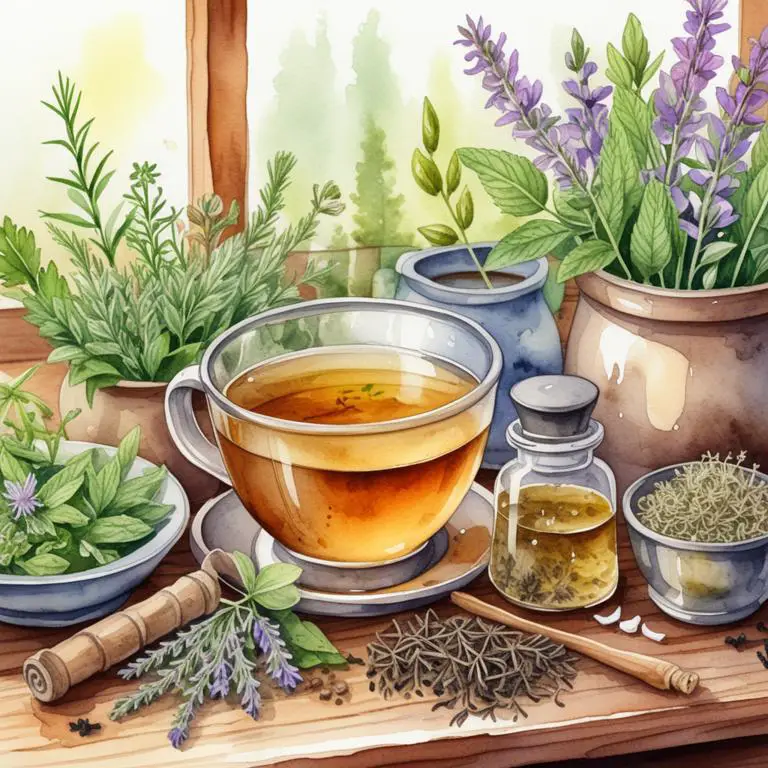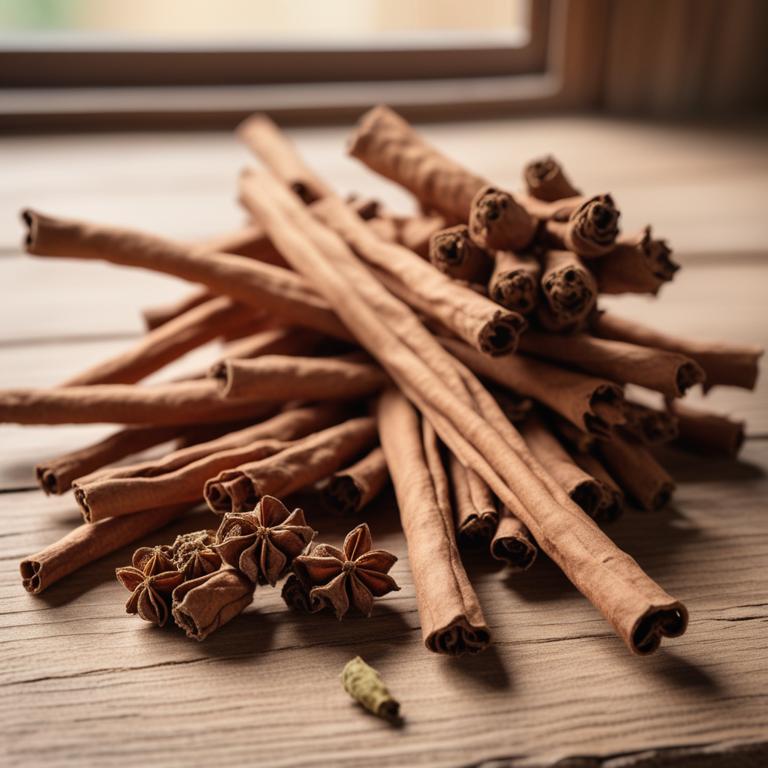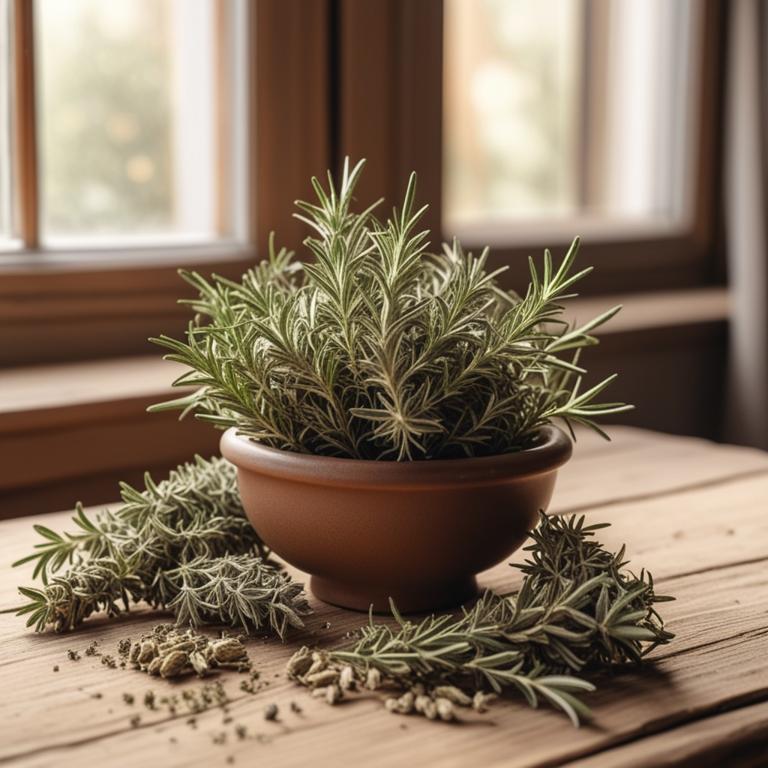Updated: Dec 1, 2024
Causes, Herbal Solutions, and Preparations for Mouth Ulcers
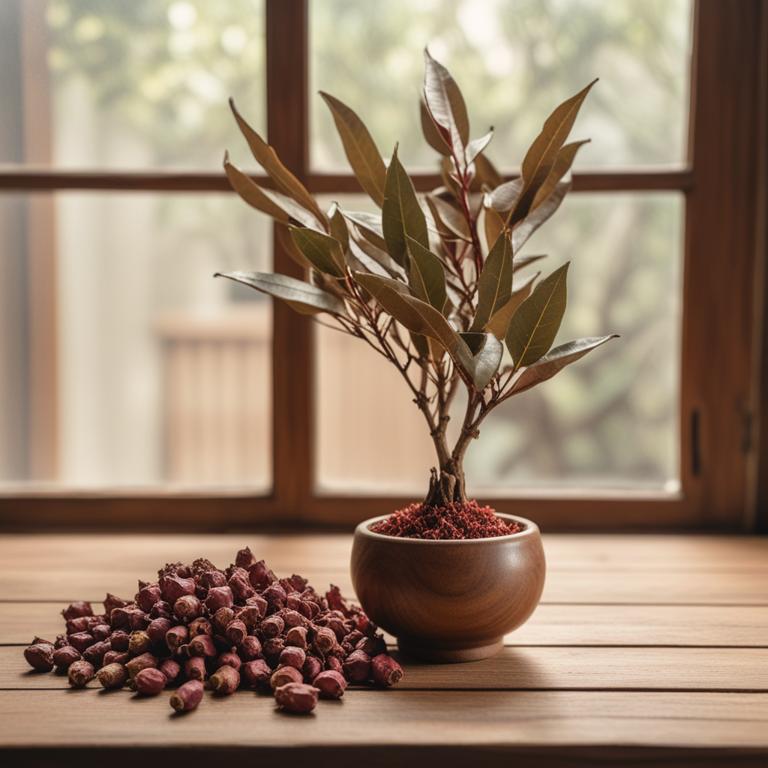
Mouth ulcers, also known as canker sores, are painful, open sores that can appear on the inside of your mouth.
They can be a real nuisance, making everyday activities like eating and talking uncomfortable. If you have a mouth ulcer, you might find yourself avoiding certain foods or social situations because of the pain and discomfort. Mouth ulcers can be caused by a variety of factors, including stress, minor mouth injuries, or certain foods that can irritate your mouth. They can also be a sign of an underlying health issue, such as an iron deficiency or a vitamin B12 deficiency. Fortunately, there are some herbal remedies that can help to soothe and heal mouth ulcers.
Herbs like aloe vera, chamomile, and calendula have anti-inflammatory properties that can help to reduce the pain and swelling associated with mouth ulcers. These herbs can be consumed as teas, applied topically as ointments or gels, or used as mouthwashes. Aloe vera juice, for example, can be consumed as a tea to help to soothe mouth ulcers. You can also apply aloe vera gel directly to the affected area to help to reduce pain and inflammation. Chamomile tea can be drunk to help to calm the body and reduce stress, which can contribute to mouth ulcers.
Calendula ointment can be applied directly to the affected area to help to promote healing.
Table of Contents
- What leads to the development of mouth ulcers?
- What are the benefits of using herbs for healing mouth ulcers?
- What are the primary medicinal herbs for treating cases of mouth ulcers?
- What are the most frequently used herbal remedies for mouth ulcers?
- What herbs can trigger or worsen mouth ulcers, and should be avoided?
- FAQ
What leads to the development of mouth ulcers?
The main causes of mouth ulcers are quite varied and can affect people in different ways.
One common cause is stress, which can trigger the release of certain hormones that increase the likelihood of getting a mouth ulcer. When we're stressed, our body's immune system can become weakened, making it harder for our mouth to heal. Another cause is Celiac disease, an autoimmune disorder that affects the way our body digests gluten. People with Celiac disease are more likely to develop mouth ulcers because their body is constantly fighting off an infection.
Certain medications, such as antibiotics and painkillers, can also cause mouth ulcers as a side effect. This is because these medications can affect the way our body heals and can cause irritation in the mouth. Some people are also more prone to mouth ulcers due to their genetic predisposition, which means that they may inherit a tendency to get mouth ulcers from their parents. Lastly, hormonal changes can also trigger mouth ulcers, especially in women who are going through their menstrual cycle or pregnancy.
The sudden surge in hormone levels can cause inflammation in the mouth, leading to the development of ulcers.
What are the benefits of using herbs for healing mouth ulcers?
Using herbs for mouth ulcers can be a great natural remedy to help soothe and heal them.
One of the main benefits is that they can reduce pain and discomfort. These herbs have anti-inflammatory properties that can help calm the affected area and make it feel better.
They can also help speed up the healing process, which means you can get back to eating and talking normally sooner. Additionally, herbs can help prevent scarring and promote a healthy environment for your mouth, which is especially important if you have recurring ulcers. Some herbs can even help fight off infections that can make ulcers worse, like bacterial or fungal infections.
By using herbs, you can also avoid harsh chemicals and antibiotics that can have side effects, making it a more gentle and natural option for relief.
What are the primary medicinal herbs for treating cases of mouth ulcers?

Mouth ulcers can be painful and uncomfortable.
Some herbs can help soothe and heal them. Echinacea purpurea, for example, has anti-inflammatory properties that can reduce swelling and ease pain. It also boosts the immune system, which can help prevent future ulcers. Glycyrrhiza glabra, or licorice root, is also effective in treating mouth ulcers. It has anti-inflammatory and antibacterial properties that can help heal and protect the affected area. Licorice root can also help reduce stress and anxiety, which can contribute to mouth ulcers. Calendula officinalis, or marigold, is another herb that can help soothe mouth ulcers.
It has antiseptic and anti-inflammatory properties that can help prevent infection and reduce pain. Calendula can also promote wound healing and tissue repair. Zingiber officinale, or ginger, has anti-inflammatory properties that can help reduce swelling and ease pain. It also has antibacterial properties that can help prevent infection. Ginger can be applied topically to the affected area or consumed as a tea to help soothe mouth ulcers. Aloe barbadensis, or aloe vera, is a popular remedy for mouth ulcers. It has anti-inflammatory and soothing properties that can help calm the affected area and promote healing.
Aloe vera can also help reduce pain and prevent infection.
What are the most frequently used herbal remedies for mouth ulcers?

When you have a mouth ulcer, it can be painful and uncomfortable.
Herbal preparations can help soothe and heal these ulcers. A tincture is a liquid extract of herbs that can be applied to the ulcer with a cotton swab. It works by numbing the area and reducing pain. You can try tinctures made from herbs like aloe vera, calendula, or chamomile, which have anti-inflammatory properties. A decoction is a stronger liquid extract that's often made by boiling herbs in water. It can be applied to the ulcer as a mouthwash, helping to reduce pain and inflammation. Decoctions made from herbs like plantain or comfrey can help promote healing and reduce the risk of infection.
A salve is a thick, oily preparation that's often used to protect and soothe the skin. In the case of mouth ulcers, a salve can be applied to the affected area to help protect it from bacteria and other irritants. Salves made from herbs like tea tree oil or eucalyptus can help reduce pain and inflammation. A gel is a thick, syrupy liquid that's often used to soothe and protect the skin. In the case of mouth ulcers, a gel can be applied to the affected area to help reduce pain and inflammation. Gels made from herbs like aloe vera or chamomile can help promote healing and reduce the risk of infection. A cream is a thick, paste-like preparation that's often used to soothe and protect the skin. In the case of mouth ulcers, a cream can be applied to the affected area to help reduce pain and inflammation.
Creams made from herbs like calendula or comfrey can help promote healing and reduce the risk of infection.
Additional Resources:
What herbs can trigger or worsen mouth ulcers, and should be avoided?
If you have mouth ulcers, it's best to steer clear of some herbs that might make them worse.
Ginkgo biloba, for instance, can cause your blood to thin, which may lead to more bleeding when you try to eat or drink. Artemisia absinthium, also known as wormwood, has properties that can irritate your mouth even further, making your ulcers more painful.
Urtica dioica, or stinging nettle, may not be as bad, but it can cause some discomfort, especially if you accidentally ingest too much of it. Taraxacum officinale, or dandelion, has a similar effect - it can irritate your mouth and make your ulcers more sensitive.
And then there's Cinchona officinalis, also known as Peruvian bark, which is known to stimulate the digestive system, but this can also cause mouth irritation and worsen your ulcers.
FAQ
Are there any specific herbs that can prevent mouth ulcers?
Some herbs like aloe vera and calendula have anti-inflammatory properties that may help soothe and heal mouth ulcers. Aloe vera's gel can be applied directly to the affected area to reduce pain and swelling, while calendula can be taken as a supplement to promote healing and prevent further ulcers.
Is it safe to use herbal remedies for mouth ulcers during pregnancy?
When it comes to mouth ulcers during pregnancy, some women turn to herbal remedies.
However, it's essential to be cautious. Some herbs like aloe vera and slippery elm may be safe to use, but others like comfrey can cause problems.
It's best to check the ingredients and talk to your body about how it reacts to any new remedies.
Are there any herbs that can reduce the frequency of mouth ulcers?
Ginger and aloe vera are known to help with mouth ulcers.
Ginger has anti-inflammatory properties that can reduce swelling and ease pain. Aloe vera has soothing effects that can calm the affected area.
Some people use these herbs as a natural remedy to reduce the frequency and severity of mouth ulcers.
Related Articles

Hyperpigmentation: Causes, Herbal Preparations, and Medicinal Solutions
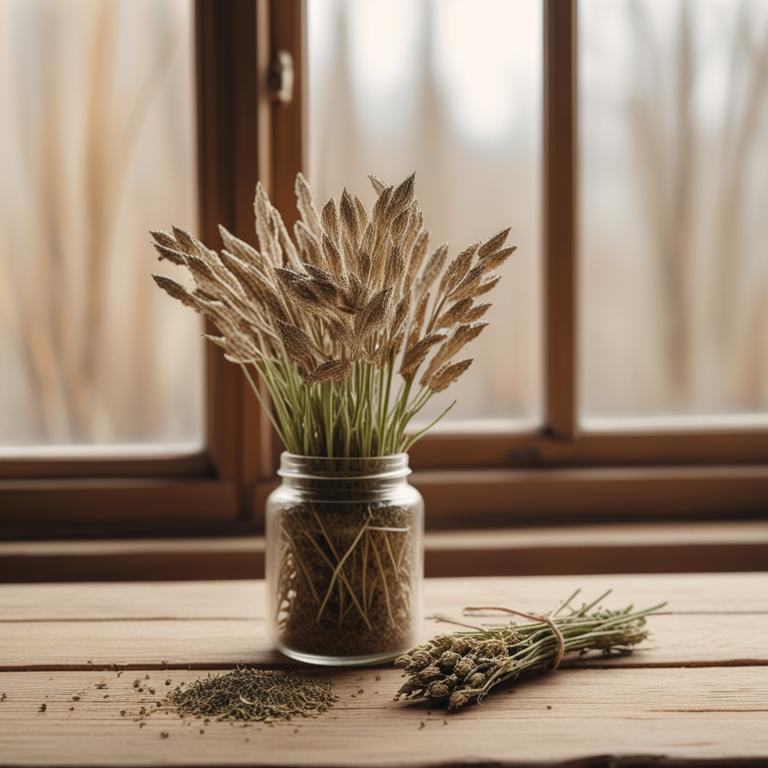
Treating Burns: Common Causes, Herbal Remedies, and Natural Preparations
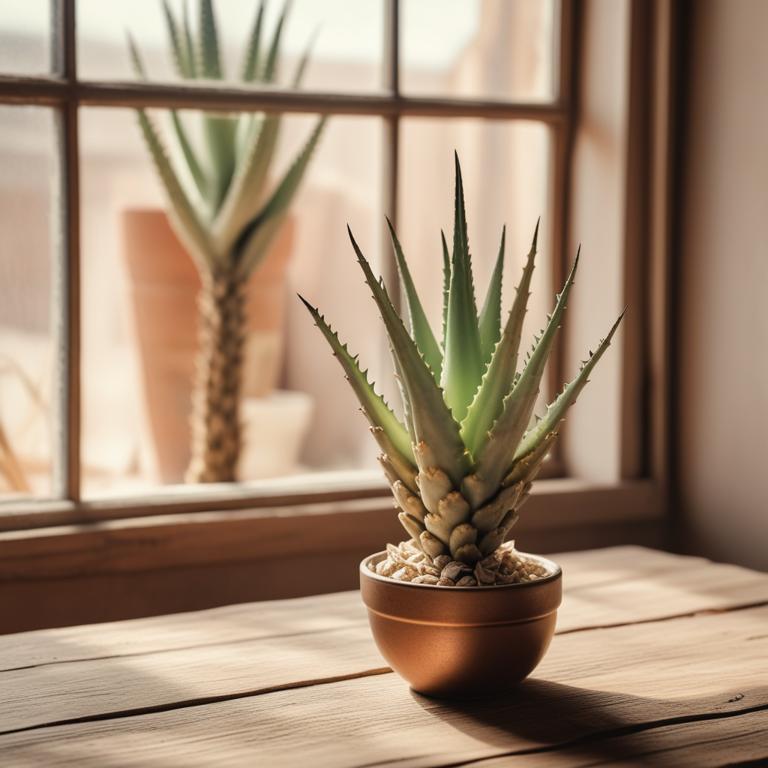
The Causes and Treatment of Excessive Sweating with Medicinal Herbs and Herbal Remedies

Dandruff: Causes, Symptoms, and Natural Treatments with Medicinal Herbs
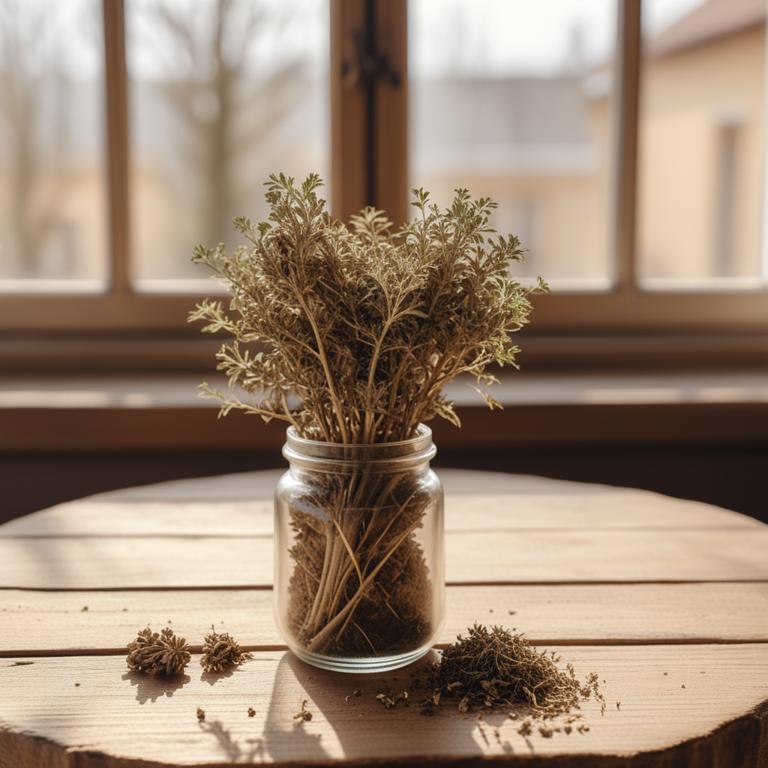
Causes and Remedies for Dark Lips: Medicinal Herbs and Herbal Preparations
